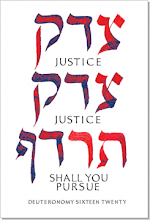Among the 613 mitzvot (commandments) of the Torah is the Biblical commandment (Leviticus 22:32) to publicly sanctify God's Name and not desecrate God's Name. The words of the kaddish are one way to sanctify God's Name.
Kaddish is a public praise of God's name. What makes it public? Saying kaddish among a minyan (a quorum of 10 Jewish men) makes it public.
The translated kaddish prayer begins "Exalted and hallowed be His great Name," to which the others present say, "amen." Thus, others respond by also praising God's Name.
Later in the kaddish, both mourner and public say, "yehesh mei rabba . . . ," meaning, "May His great Name be blessed in this world and in all worlds." Again, both mourner and public praise God's Name.
Nothing about death or mourning appears in the words of the kaddish. Rather, the mourner, many times each day, publicly re-affirms his/her devotion to the Almighty, notwithstanding a terrible loss. That is how I see it, anyway.
I was taught that saying kaddish is one way to cancel out the al lack of praise for God's name, or, noo matter how accidental or unintentional, the opposite of praise. And that no matter how saintly a person was in life, such unintentional acts or omissions are bound to have happened many times. Perhaps a person did or said something that caused a non-Jew to curse the Jews or God. Did a Jew act arrogantly toward non-Jews? It does not take a Berinie Madoff to give people an excuse to curse Jews and, thereby, curse God. Perhaps someone publicly violated essential Jewish laws, which is a public statement as well.
And to do the opposite - to sanctify God's name? Well, certainly there have been acts of Jews that caused non-Jews to praise God or praise the Jews.
And how about, as mentioned above, saying kaddish publicly. And to be there for others when they need a minyan so that others can say the kaddish. And then there is the act of giving one's life for the sake of
God's name.
After one dies, is there a tally of the number of times one sanctified or desecrated God's name? I don't know. But we are also taught, through a story about Rabbi Akiva, that publicly saying kaddish in memory of a person does mitigate the harm to one's soul by causing desecration of God's name during life or failing to praise God's name.
In the story, severely shortened here (you can google it and read about it elsewhere in various forms and details), Rabbi Akiva, while walking in the woods, comes upon a suffering soul on this earth, and learns that the man had not led an exemplary life. Rabbi Akiva takes it upon himself to teach the man's son Torah, to read and write, to recite grace after meals, to say "Shema" and to pray. Later, after the boy prayed in public, saying the kaddish and causing the people to praise G-d's name in response, the man returned to Rabbi Akiva to thank him for helping ease his suffering..
This story teaches us the something about the power of kaddish in memory of a parent. Saying it praises God's name and causes everyone present to praise God's name in response. That's a powerful incentive to get as many people as possible to praise God's name.
So when I say kaddish, I and others are praising God's name in memory of Chaya bat Yisrael, Zichrona Livracha, may her memory be for a blessing. And though mom would never have intentionally hurt a fly, and did may kind things for many people, I do this for her to be sure that the tally heavily is in her favor.
Friday, January 1, 2010
Subscribe to:
Comments (Atom)
